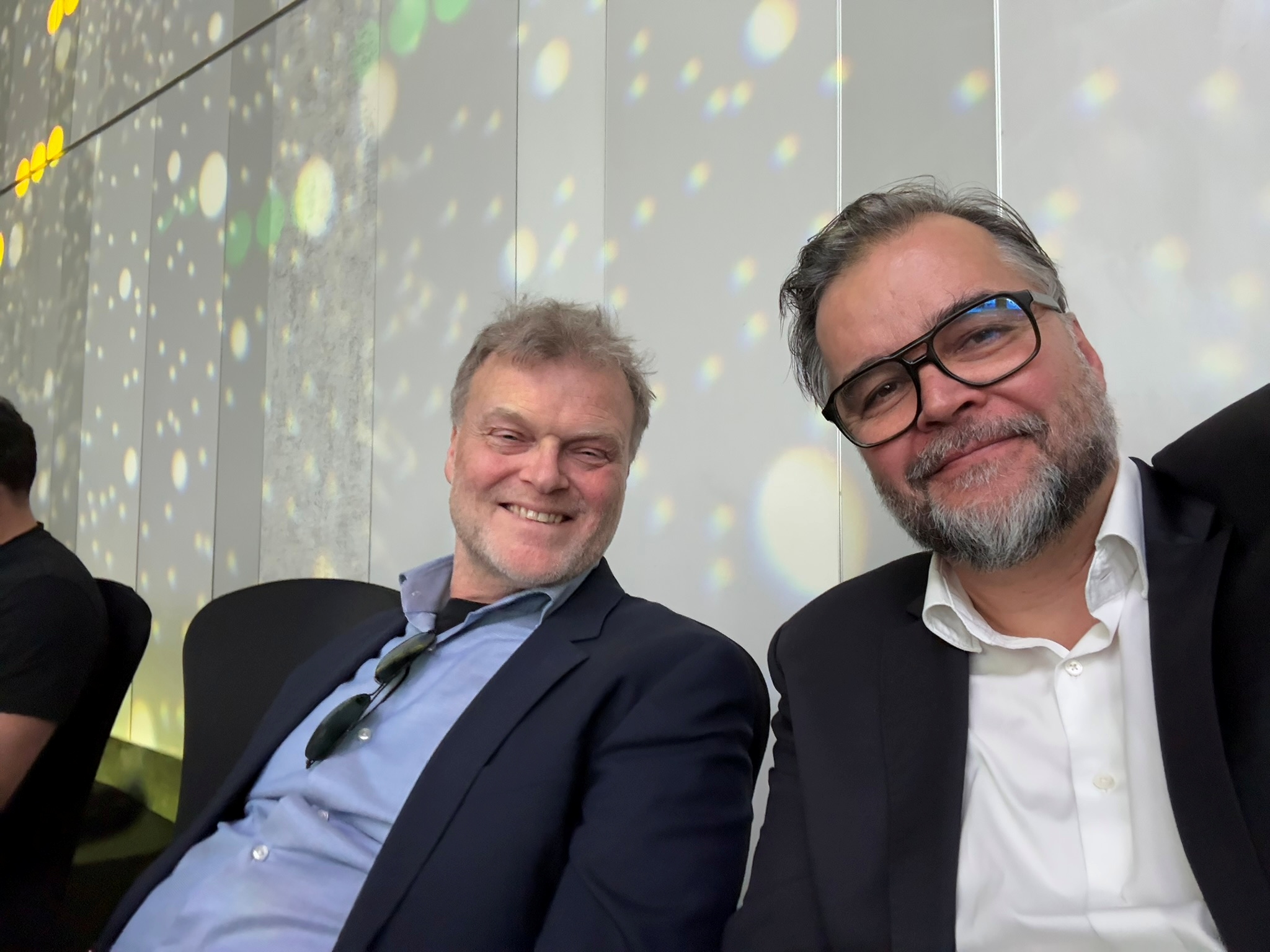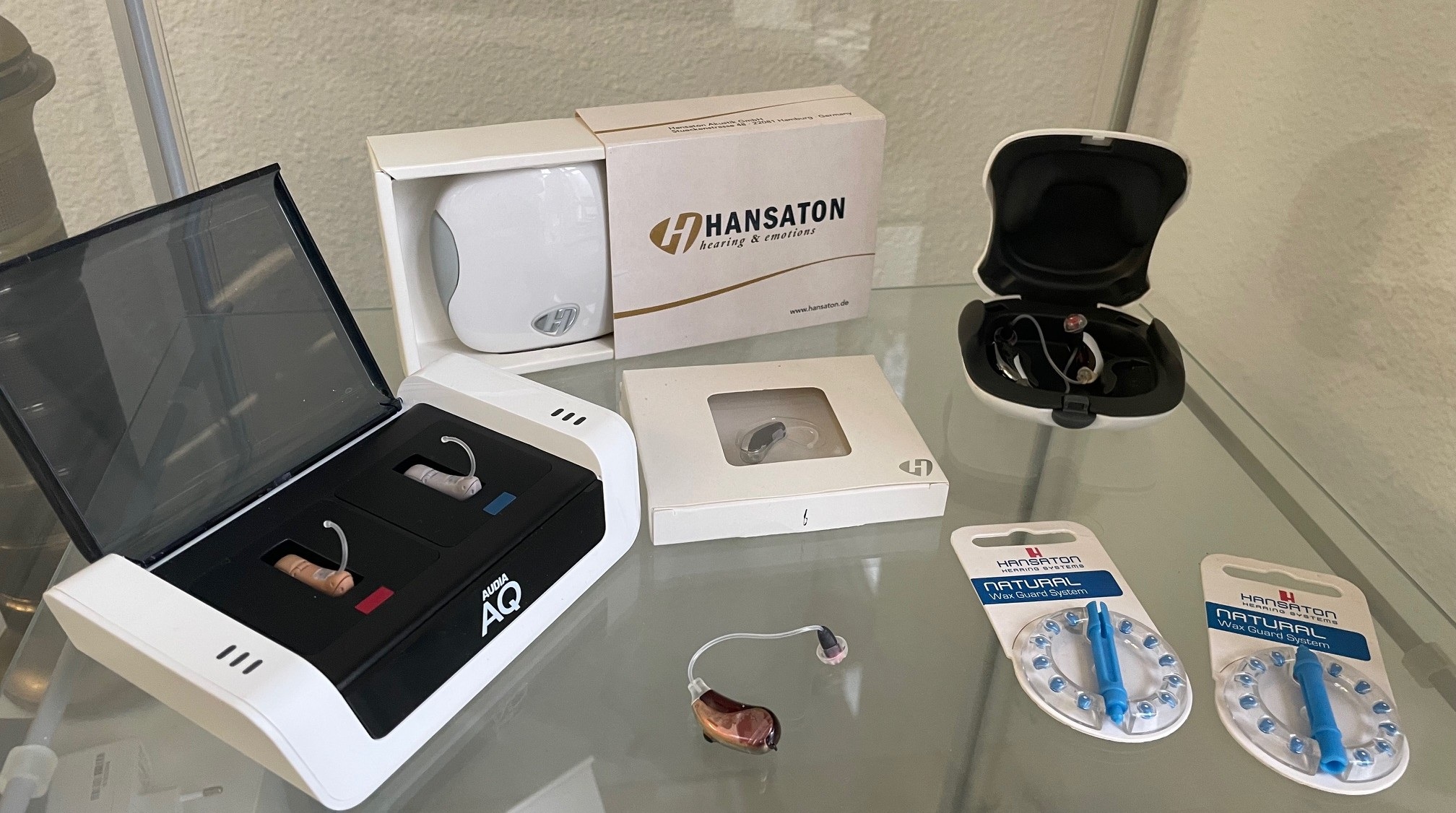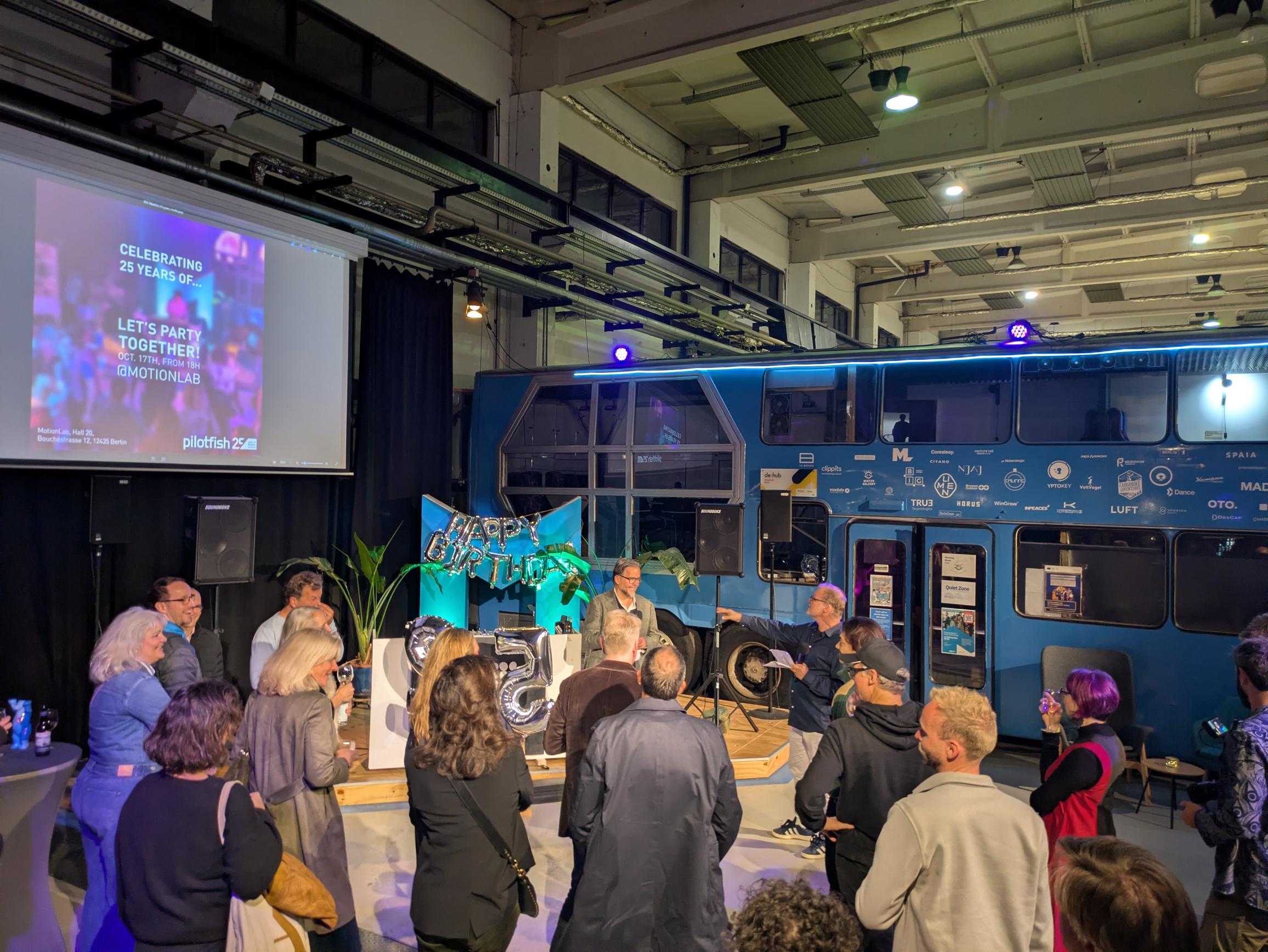25 Years of Pilotfish: a conversation with Harm Hogenbirk and Marc Nagel
As Pilotfish gets ready to celebrate 25 years, we sat down with our founders, Harm Hogenbirk and Marc Nagel, for an honest conversation about the unforgettable highs of the past quarter-century, and why they’re convinced that industrial design bureus like Pilotfish still have an important role in shaping the future.
What does it mean to be an industrial designer?
Harm:
“For me, it has always been about impact. Already back at the art academy, I knew I didn’t want to be an architect or an artist. I wanted my creativity to go into something that could improve people’s quality of life. Industrial design allowed me to explore, discover, and come up with solutions that not only looked beautiful but actually enhanced what people could do.”
Marc:
“For me, design is both a craft and a way of thinking. You work within restrictions - user needs, materials, costs - and you solve problems by combining them into meaningful solutions. The magic happens when a product not only works but also creates that little spark in your brain, that smile. That’s when function becomes something more.”
What qualities does a designer need to create innovation?
Marc:
“First of all, the courage to throw away your first idea. Many get stuck there, but real innovation comes from exploration. And then you need to go beyond the typical designer’s toolbox - be curious about people, about business, about everything that surrounds a product. That makes you truly versatile.”
Harm:
“I remember an early mentor teaching me not to fear the white page. Ideas are free, you just have to let them flow. At Pilotfish, we learned to always search for the essence of a product - something you can capture in a single sentence. Once you know that, every detail can consistently express it. That mindset still drives us.”
What was the most unforgettable moment of glory in 25 years?
Harm:
“The opening of our Taipei office. Seeing that black floor, the windows everywhere, the open tables when everyone else in Taiwan worked in cubicles, I thought, wow, we’ve achieved something. It felt like we were on the right path. And of course, the first Golden iF Award in 2006, that was a proud moment too.”
Marc:
“For me, it’s when our designs reached the market. Seeing the MINI on the road or our hearing aids being used - that was special. And the worldwide press release of the Onyx phone, just before the iPhone launched, was an incredible moment. It showed that we were playing with the big guys.”
How has product development changed since 2000?
Marc:
“It has sped up dramatically. 3D printing made prototyping faster and more accessible. Simulation replaced a lot of empirical testing. Everything is faster now. But also, most products today include electronics. Standalone objects are rare, connectivity has become the norm.”
Harm:
“Exactly. When we started, marketing often promoted products nobody really needed, just with a good story around them. Today, products have to be purpose-driven, business-driven. That shift is huge.”
With AI rising and big consultancies buying up small studios, is there still a niche for boutique firms like Pilotfish?
Harm:
“Big consultancies buy studios to show they can walk the talk. But often, the cultures clash, and a lot of talent gets wasted. Independence gives us the freedom to do things differently. The challenge now is that clients also use AI tools and think they have it all figured out. Often, they don’t. So, our role is shifting - we have to educate, to guide, and to stay ahead by combining our creativity with these new tools.”
Marc:
“Exactly. Our strength is that we’re not only consultants, we also offer production and a much wider view. AI will shorten cycles and change roles, but it can’t replace the human connection. Mainstream AI outputs average solutions. Innovation means going beyond that. Our job is to bring vision, empathy, and originality to the table.”
Closing words
Twenty-five years ago, Harm and Marc started Pilotfish with a shared belief: design should make life better. Today, they continue to prove that there is room for boutique design firms that are agile, human-centered, and unafraid to evolve.
Harm:
“I remember fondly the team spirit, the creativity, the openness. That’s what made Pilotfish more than a workplace.”
Marc:
“And that’s still our spirit today. We design for impact, for people, for the future.”





